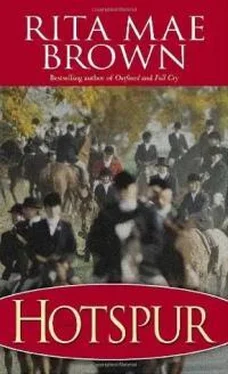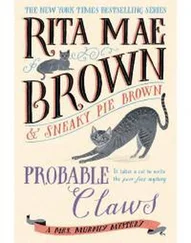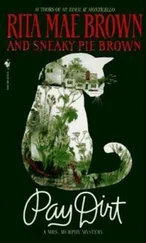Marty loved hearing these stories and knew there was so much to learn not just about foxhunting itself but about the incredible people who had carried it forward throughout the generations. “When did you get your first job?”
“Here.” He put his hand under Marty’s elbow as she was about to step into a small depression. “Jefferson Hunt needed a first whipper-in, and even though I was young, Fred vouched for me. Raymond put me on every screwball horse he could beg, borrow, or steal before he’d hire me. He finally said, ‘Kid can stick on a horse.’ That was that. And I never want to leave. I love it here.”
“Do you ever worry about the money? I mean, huntsmen make so little, and what if something were to happen?”
“I don’t worry. Maybe I should, but I knew as a little kid that my life wasn’t about money. This is what I’ve always wanted to do, and you know, Mrs. Howard, there isn’t enough money in the world to get me to give it up.”
“But what if you’re hurt?” Marty belonged to the worrying class.
“The Boss will take care of me just like I’d take care of her. We’ve been though a lot together.”
Marty thought about this, an attitude so different from the way she was raised and from the milieu in which she lived. “You’re a lucky man.”
Betty called out to Shaker, “How about those young entry?”
He gave her the thumbs-up sign.
Crawford, hoping to ingratiate himself with a person he considered a servant, and technically, Shaker was a servant, said, “Thank you.”
“The hounds did all the work.” Shaker smiled.
Sister, in line, observed the exchange as well as the high spirits of the group.
Bobby, in front of her, was chatting with Tedi. He noticed his wife. “Hey, hey there. I see you flirting with my wife.”
Ken Fawkes, who was holding a plate for Betty, replied, “Bobby, I’ll give you credit. You knew a good thing when you saw it.”
Everyone laughed.
As Shaker moved through the line, people complimented him. He was their star. They watched him ahead, taking the jumps first, without a lead. They saw him traverse territory they could loop around thanks to the wisdom of Sister, and they watched him work patiently with the hounds.
“Well done.” Bobby beamed as he passed Shaker.
“Can you eat all that?” Shaker looked at Bobby’s full plate.
“I can. That’s the problem.”
Once everyone had a full plate, the caterer’s assistant walked about refilling coffee cups, fetching hot tea or a cold Co-Cola.
People sat on their portable mounting blocks, hay bales, upturned buckets.
Sister, sitting next to Shaker, said to Ronnie Haslip, “Do you remember the day two years ago when Shaker had the flu so I took the horn?”
“Indeed, I do,” Ronnie replied.
“I asked him for advice and he said, ‘Well, I’ll tell you what Fred Duncan told me: Hunt your hounds and don’t look behind you.’ So I did.”
The horses hung their heads over the fence, observing the delighted people. The caterer gave them apples from the fruit basket.
“I like this guy,” Keepsake commented.
Golly had positioned herself in the middle of the seated humans. She lay on her side, her tail lazily swishing up and down. Then she casually rolled on her back, her glittering eyes scanning the group. “I’m here.”
Sybil laughed. “Sister, Golly is speaking to us.”
Everyone focused on the cat, which encouraged her behavior. Raleigh and Rooster, seated by Sister, ignored the calico.
“Golly, come over here. I’ll give you bacon,” Tedi offered.
That fast, the cat sprang to her feet, zoomed over, and snatched the bacon from Tedi’s fingers.
“Shameless,” Marty commented.
The conversation bounced between everyone at once and then small fragments of people.
Tedi was mentioning to Sister her memories of a safari her parents had taken her on when she was a teenager. “. . . no one thought much about conservation back then. You know, I look back and I regret those tigers and giraffes my parents bagged. But I can’t bring himself to throw out the hides. It seems sacrilegious somehow. And you know, too, Janie, I have much more fun foxhunting than I ever did or could on a safari. ‘O, the blood more stirs, / To rouse a lion than to start a hare!’ Remember? Hotspur. He was wrong.”
“Sir Henry Percy never hunted fox, he was too busy hunting the Scots.” Crawford joined the conversation.
“Never hunted behind Ashland Bassets, either,” Edward commented, mentioning a pack of bassets whose quarry was rabbit. Following them on foot could be very exciting.
“Hey, where’s Ralph today?” Betty asked.
“Moline,” Ken answered. “Conference.”
Moline was the headquarters of John Deere.
“Poor Ralph. Had to miss the first day of cubbing because of business. Work interferes with the really important things in life,” Bobby said, and laughed.
As the gathering broke up, Crawford was telling Ron why they chose a breakfast instead of a party. He kept his voice low. “. . . memories. Marty discreetly inquired around and found out that after Nola and Guy disappeared no one ever gave a First Day of Cubbing evening party again. We thought better of it, but then Marty suggested we do this. I think we’ll make a tradition of it.”
“I hope you do. Of course, that means next year you’ll have one hundred people out on the first day.”
Crawford shrugged. “Good. I’ll just buy more eggs.” He picked up his mounting block, placing it inside the tack room of his trailer. “As nothing else had turned up, comes as no surprise, I think we’ve heard the last of Nola and Guy. It’s for the best.”
Ron replied, voice even lower, “God, I hope so.”
CHAPTER 16
A thin wisp of ground fog snaked over the pasture where Lafayette, Rickyroo, Keepsake, and Aztec munched and a family of raccoons crossed toward the garbage cans in the barn. Occasionally if Sister forgot to close the tack room door the raccoons would open the desk drawer and pull out bags of bite-sized Hershey’s bars. They loved sweets, as did the possums who followed them at a discreet distance.
Lafayette lorded it over the Rickyroo and Aztec, both young horses at six and five respectively. He relayed the day’s hunting, from the first moment the bit was in his mouth to his wash down with warm water in the wash stall, in colorful detail.
Keepsake, eight years old and a thoroughbred/quarter horse cross, thought Lafayette was laying it on a little thick. He nibbled twenty feet away from the three thoroughbreds. He liked them well enough but he felt he was more intelligent, or at least less gullible.
He noticed the downstairs lights in the house going off, the upstairs bedroom light switching on. The blue light of the television shone from Shaker’s window. He noticed Showboat, Gunpowder, and Hojo, three former steeplechasers, dozing in the adjoining pasture. Each of them had been donated to the hunt for the huntsmen’s use. Sometimes that meant the horses were orangutans; no one else could handle them, so this was the last stop unless the owner shipped them off to the killers. Few foxhunters wanted to put a horse in the knacker’s trailer no matter how badly the animal behaved. But the Jefferson Hunt membership had a wide sweep of contacts. Gunpowder had even spent time competing on the flat track. Having run over timber in steeplechase meets, these three disdained the jumps in the hunt field and thought any equine who even glanced sideways at such a puny obstacle, the largest being three feet six inches, was a wimp.
Keepsake could and would jump anything, so he shrugged off their air of superiority.
The night was thankfully cool and pleasant, the breeze still easterly. Sister turned off the air-conditioning and opened the bedroom windows.
Читать дальше












